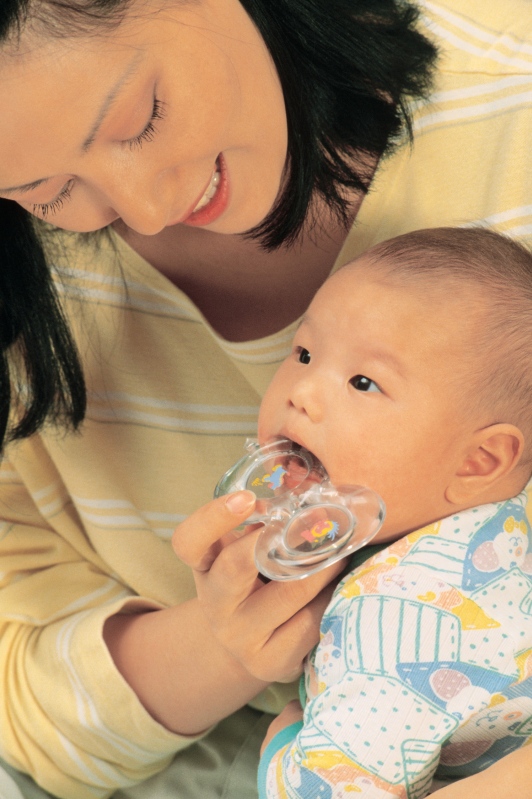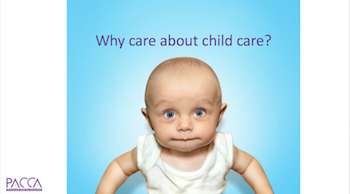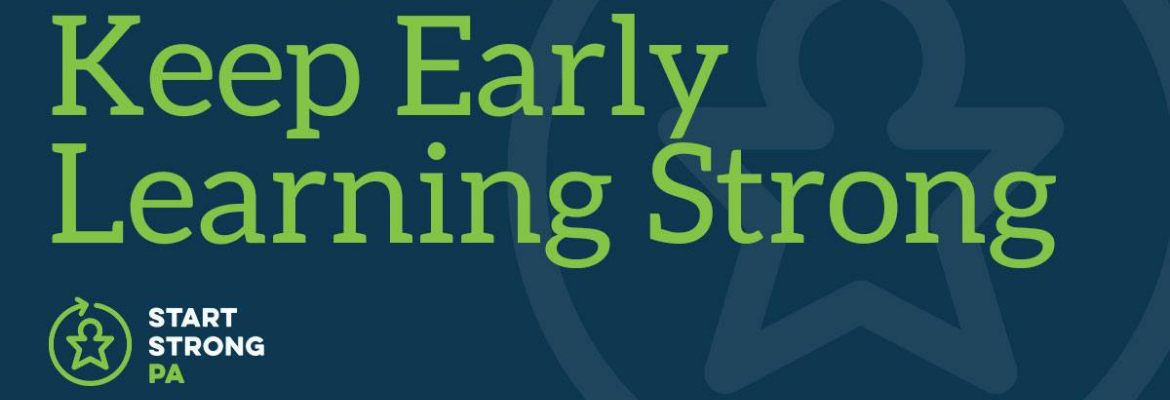Parent Resources
 Parent Resource Center for Quality Child Care
Parent Resource Center for Quality Child Care
Attention Parents! Learn about quality care, what it is, how it is measured, and how you can help improve child care in Pennsylvania. In addition, you will find numerous resources, including:
- Lower Taxes or Increasing your Refund
- How to file a complaint against a child care program
- Parenting Resources
Why Care about quality?
Quality child care really does make a difference in your child’s future! Your child may seem to just play or giggle all day, but she is really learning life skills. As your child’s body grows, her intellectual and emotional growth is just as dramatic. Your child is learning language and numbers, but also how to interact with others and handle life’s ups and downs. In fact, you are your child’s first teacher!
These early experiences have a big impact on your child’s future happiness & Success. The America Academy of Pediatrics reports that a child’s mind develops rapidly y age three, and his environment and experiences play a central role in this development.
Your child will benefit from quality child care his entire lifetime. A landmark study shows that adults at age 40 who participated in a quality preschool program have higher earnings, are more likely to hold a job, have committed fewer crimes, and are more likely to have graduated from high school.
It is vital that you choose child care that will partner with you to provide what’s best for your child. Quality child care programs provide early care and education that promotes your child’s growth and development so that he is ready for school and for life. It’s time to invest in quality from the start.
NOTE: PACCA will update web-links once the site is live.
Useful materials:
- Why Care About Child Care
 FOR FAMILIES: Why Care About Child Care? (8/26/2020)
FOR FAMILIES: Why Care About Child Care? (8/26/2020)
Are you a working parent who needs child care? A parent of a child who needs more interaction with other children? A parent who is concerned about your child’s kindergarten readiness? Need to know about getting help to pay for child care? And what do “licensed” and “high quality” really mean? This is an introduction for parents or other caretakers (guardians or foster families) to the landscape of child care in Pennsylvania.
Panelists on this webinar include Christy Renjilian, Executive Director of Child Care Consultants, Inc, a non-profit that provides Early Learning Resource Centers in 7 counties; Aliya Johnson Roberts of Pratt Street Learning Center, and Home-based provider Patricia Luft. https://youtu.be/9v13wOPFZgo
Handouts:
Map of Early Learning Resource Centers in Pennsylvania
- Choosing Quality Child Care
Facts about Quality Child Care
What makes up a quality program?
Teachers with education and experience. The education and experience of the teachers is the most important aspect of quality care for your child. A qualified teacher knows how to talk to your child and help your child learn. A qualified teacher can also help you understand how your child is growing physically, mentally, emotionally, and socially.
Teachers that stay. A child bonds with his teacher the same way he bonds with is parents. When a teacher leaves, it can affect how your child relates to other adults. Because child care teachers are paid so little, turnover can be high.
Child:staff ratios. The fewer a teacher cares for, the more time and attention a child receives. Listed below are child:staff ratios required by Pennsylvania. Child Care Providers that strive for lower child:staff ratios are working to provide higher quality care for your child.
Department of Public Welfare (DPW) child:staff ration requirements
| AGE | Child:staff ratio |
| Birth – 12 months | 4:1 |
| 13-24 months | 5:1 |
| 25-36 months | 6:1 |
| 3-5 years old | 10:1 |
Developmentally appropriate practices (DAP).
Developmentally appropriate practices are activities that meet the developmental level of your child. You wouldn’t ask a two-year-old to sit at a desk all day, would you? Quality child care programs have classrooms and activities that meet the needs of your child at each developmental stage.
Useful Links:
- Developmental Milestones (Zero to Three)
- News You Can Use: Developmentally Appropriate Practice (Administration for Children & Families)
Ways to measure the quality of child care programs
With more than 8,000 certified child care programs in Pennsylvania, how do you know if one is a high-quality program? Fortunately, there are resources available to help you choose a quality program that is right for you and your child.
Keystone STARS. Keystone STARS is a quality improvement initiative for child care programs in PA. Programs can receive a STAR 1- STAR 4 rating (STAR 4 being the highest).
You can search using the Department of Human Services free provider search on the COMPASS website: https://www.compass.state.pa.us/Compass.Web/ProviderSearch/Home#/BasicSearch
To read the criteria for each STAR level to understand more about what STAR Means, visit the PA Keys website at https://www.pakeys.org/keystone-stars/
Accreditation. Programs with accreditations from the organizations listed below have been found to have high quality.
National Association for Education of Young Children (NAEYC)- for a listing of programs in Pennsylvania with NAEYC accreditation, go to https://ais.naeyc.org/search_programs
National Association for Family Child Care (NAFCC)- you can search for accredited programs at https://nafcc.org/accreditation/. There is a map of NAFCC programs at the bottom of the page.
National Early Childhood Program Accreditation (NECPA) you can search for accredited programs by state at https://necpa.net/programs/
T.E.A.C.H. Sponsoring Center or Family provider. T.E.A.C.H. Early Childhood® PENNSYLVANIA (Teacher Education And Compensation Helps) is a scholarship program for child care teachers and directors to attend college classes while working full-time. Child care programs that sponsor teachers in T.E.A.C.H. care about their staff and are investing time and money to help make them better teachers for your child. Programs may have a certificate posted that indicates they participate in T.E.A.C.H., but you may also want to ask if they are involved in T.E.A.C.H.
Useful links:
Child Care Check List (American Academy of Pediatrics)
A Parent’s Guide to Choosing Safe and Healthy Child Care 2019 (National Resource Center for Health and Safety in Child Care)
What can I do as a parent to improve child care in Pennsylvania?
Develop a partnership with your child’s teachers. By communicating and working with your child’s teachers, you can help reinforce new skills and identify potential areas of concern. The more information the teacher has about your child, the better job he/she can do.
Stay informed. Visit our Public Policy page regularly for information on state and federal legislation that may affect child care in Pennsylvania. When necessary, you will also see requests for action to write a letter or contact your representative.
Talk to your friends, coworkers, and families about quality care. Too many people still think of child care as babysitting and do not know how important quality early care and education is to a child’s future. Educating those around you may be one of the most important things you do.
Join PACCA. If you would like to support PACCA’s efforts to promote quality early care, you may join as an Affiliate member. For more information on membership, email PACCA at info@pacca.org or if you have additional questions, please contact PACCA at info@pacca.org or by calling (717) 657-9000.
How do I make a complaint about a child day care facility?
Contact the appropriate Department of Human Services Regional Office of Child Development and Early Learning office. Each regional child day care office is assigned responsibility for certain counties in Pennsylvania. Regional office staff investigates complaints about child care centers, group child care homes, and family child care homes that do not follow regulatory requirements for operating a facility.
There are four Regional Offices of Child Development and Early Learning in Pennsylvania. Each regional office is responsible for child care facilities located in specific counties grouped by geographic area
The duties of the regional offices are:
Provide information to parents, providers, and the general public regarding the Department of Human Services' requirements for operating a child care facility.
Provide information regarding a child care facility’s certification or registration history.
Conduct orientation training for prospective child care providers.
Receive applications from entities that want to open a child care center, group child care home, or family child care home.
Conduct initial inspections, renewal inspections, and unannounced inspections of child care centers and group child care homes to assess compliance with the Department of Human Services' child care service regulations.
Conduct random sample inspections of family child care homes.
Provide technical assistance to child care providers in meeting the regulations.
Conduct complaint investigations related to regulatory noncompliance at child care centers, group child care homes, or family child care home.
Conduct complaint investigations related to illegal operations of a child care facility.
Make the decision to issue a certificate of compliance or certificate of registration to a child.
Additional Parenting Resources
Help to pay for child care
The subsidized child care program helps low-income families pay their child care fees. The state and federal governments fund this program, which is managed by the Early Learning Resource Center (ELRC) office located in your county. More information on the Child Care Works program is available here.
Tax credits for parents. As a parent, you may be eligible for one or more of the following tax credits.
Federal child tax credit (up to $1,000 per child)
Federal Credit for Child and Development Care Expenses (up to $2,100)
Federal Earned Income Tax Credit (up to $4,400)
Choosing Quality Child Care:
- NEW: Look, Listen, and Ask: Choosing Quality Child Care Tip Sheets (childcare.gov)
- Is this the right place for my child? (Child Care Aware) - updated 9/4/20
- A Parent’s Guide to Choosing Safe and Healthy Child Care revised July 2019 (National Resource Center for Health and Safety in Child Care)
Parenting Resources:
- Healthy Minds: Nurturing your Childs Development (Zero to Three)
- Child & Family Web Guide (Tufts University)
- Children's Health Insurance Program: CHIP is Pennsylvania's program to provide quality health insurance for children of working families who otherwise could not afford it.
- Kidshealth.org Family Education Network – an index of resources to help your child with school, fun, and life
- A Guide for First-Time Parents
- Parent to Parent of PA (a network created by families for families of children and adults with special needs)
- Special Kids Network: The toll-free Special Kids Network helpline (1-800-986-4550) is a quick and easy way to find the many resources in your community that may help meet your child's special health care needs. (Link updated 9/4/20)






